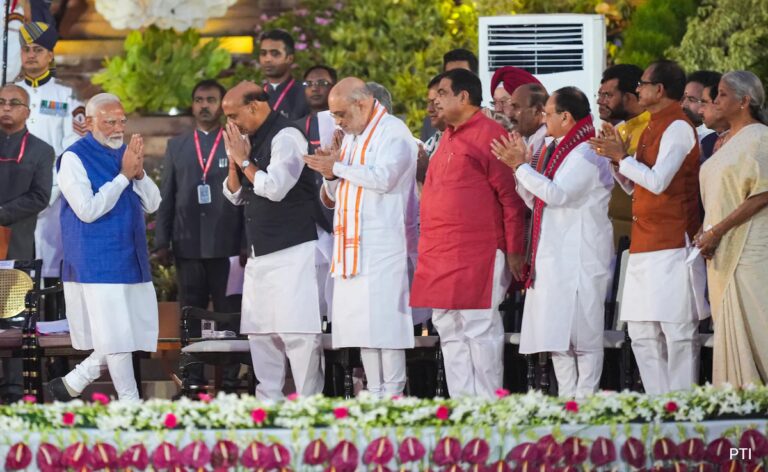
Politics has become a deeply personal issue in India, and the 2024 election results have demonstrated this once again in an unexpected way.
I live in Mumbai, where people avoid discussing politics on a daily basis. The rhythm of life in Mumbai is such that people, be they tempo drivers or business tycoons, are busy with more important things in their lives and appear aloof. But like many other Indians, they are not aloof. They watch quietly, but when it comes to voting, they speak out loudly and with crystal clarity. In that sense, Mumbai represents the diversity of India, not only during elections but even after.
In the recent election, we noticed a decrease in noise across the country. People were either indifferent or silent, and we suspect they were perhaps purposely silent to confuse the experts. As the election drew closer, silence meant different things to different people.
What the results show is that most people make independent decisions when it comes to voting, but they don’t necessarily vote to pursue their own personal interests, but for the collective good. It’s all seamless. People are communicating that the larger concerns of the collective must accommodate the seemingly mundane challenges of everyday life, and vice versa.
It was remarkable to observe that as soon as the results were out, almost everyone was discussing politics and the meaning of the results with incredible passion and on an unprecedented scale. This was in stark contrast to the silence before the vote counting day. Clearly, people made their voices heard in voting. In conversations with various stakeholders in Mumbai — a fruit seller from Ratnagiri, a businessman from Borivali suburb, a taxi driver from Bihar, a delivery boy from Uttar Pradesh — I noticed a huge surge in views after the verdict.
Over the years, I have heard stories of big arguments and fights erupting in family and friends WhatsApp groups. This election has revealed another dimension: contrasting political views even among close family groups. Maybe people avoided discussions or maybe they didn’t have the opportunity to have deeper and more honest conversations. But after the election results, I started to see heated debates and discussions within my family, something I hardly saw before. This is true across the country. Silence has been replaced by triumphant declarations peppered with I-told-you-so bravado.
From urban to rural dwellers, from the elderly to Gen Z, they have all made their political choices as individuals. But it reflects collective wisdom. Indians, who have always been deeply and passionately democratic, know that they are the masters of their country and assert their right to rule through votes every five years. Returning to the era of coalition government after a decade-long hiatus is a reminder to politicians that they must deliver on their promises in word and spirit or they will be punished. And the implementation must be specific and tailored to the needs and aspirations of the people. A one-size-fits-all approach may not work. Not in the information age we have entered.
In summary, Narendra Modi’s National Democratic Alliance (NDA) returned to power for a record third term, albeit with a smaller majority. The Bharatiya Janata Party (BJP) lost seats, while Rahul Gandhi’s Indian National Congress and Akhilesh Yadav’s Samajwadi Party (SP) gained seats. The opposition parties fell well short of a majority.
It would be a mistake to try to come to one sweeping conclusion. This is a multi-layered verdict. This is the beauty of the India we know and have grown up with. The 2024 term is like a rainbow whose colours politicians must work hard to decipher. And they must do so with humility and passion, not with contempt. This verdict marks the triumph of individualism.
Voters accepted one set of parties in one place and rejected the same parties in another. Voters punished kingmakers and traitors somewhere and gave them a chance elsewhere. Voters challenged certain concepts like national interest, caste loyalty and religiosity. Individualism triumphed over caste and religion based considerations. The votes of over 640 million working Indians sent a clear message that politics is deeply personal and economic in all its dimensions. Welfare politics must move to a different level and deliver KRAs (Key Accountability Areas) like jobs, growth and equity, which are all measurable.
The underlying message of this “win-win” ruling is that politicians must redouble their efforts and keep their eyes firmly on the future.
Three cheers for Indian democracy and all it stands for.
(Sanjay Pugalia is CEO and Editor-in-Chief, AMG Media Network)
Disclaimer: These are the personal opinions of the author.

